Life
Sign up for our newsletter
We summarize the week's scientific breakthroughs every Thursday.
-
 Animals
AnimalsDog DNA study maps breeds across the world
Here are five findings from a massive study of dog breed genomes.
-
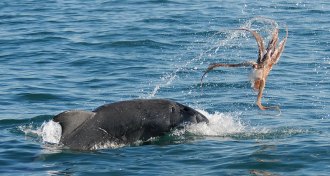 Animals
AnimalsHow a dolphin eats an octopus without dying
An octopus’s tentacles can kill a dolphin — or a human — when eaten alive. But wily dolphins in Australia have figured out how to do this safely.
-
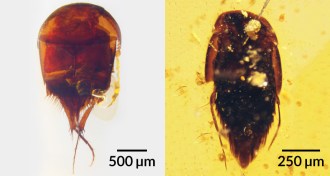 Animals
AnimalsBeetles have been mooching off insect colonies for millions of years
The behavior, called social parasitism, has been going on for about 100 million years.
-
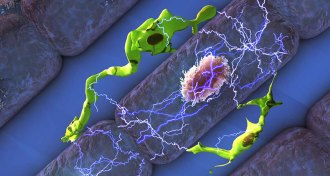 Life
LifeImmune cells play surprising role in steady heartbeat
Immune system cells called macrophages help heart cells rhythmically contract, maintaining the beat of mice’s hearts.
-
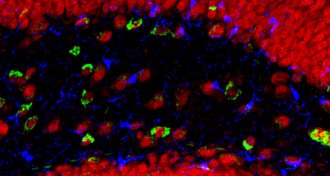 Neuroscience
NeuroscienceBrain gains seen in elderly mice injected with human umbilical cord plasma
Plasma from human umbilical cord blood refreshes aspects of learning and memory in mice.
-
 Particle Physics
Particle PhysicsScientists find amazement in what’s most familiar
Acting Editor in Chief Elizabeth Quill discusses the unexpected nature of science.
-
 Animals
AnimalsReaders bugged by wine-spoiling stinkbugs
Stinkbug hazards, Great Lakes invaders and more reader feedback.
-
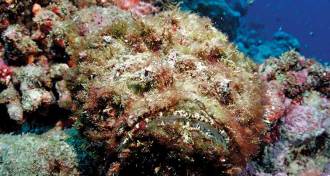 Animals
AnimalsVenomous fish have evolved many ways to inflict pain
Fish venom shows great diversity and is being studied to treat pain, cancer and other diseases.
By Amber Dance -
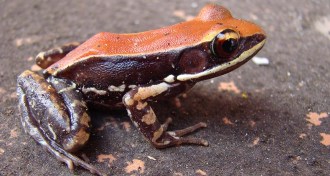 Health & Medicine
Health & MedicineFrog slime protein fights off the flu
Urumin, a protein found in Indian frog mucus secretions, has a knack for taking down H1 flu viruses, a new study finds.
-
 Health & Medicine
Health & MedicineFrog slime protein fights off the flu
Urumin, a protein found in Indian frog mucus secretions, has a knack for taking down H1 flu viruses, a new study finds.
-
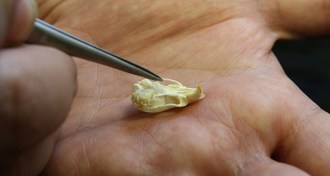 Archaeology
ArchaeologyHow the house mouse tamed itself
When people began to settle down, animals followed. Some made successful auditions as our domesticated species. Others — like mice — became our vermin, a new study shows.
-
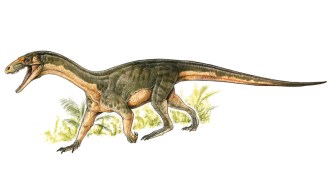 Paleontology
PaleontologyEarly dinosaur relative sported odd mix of bird, crocodile-like traits
Teleocrater rhadinus gives researchers a better picture of what early dinosaur relatives looked like.